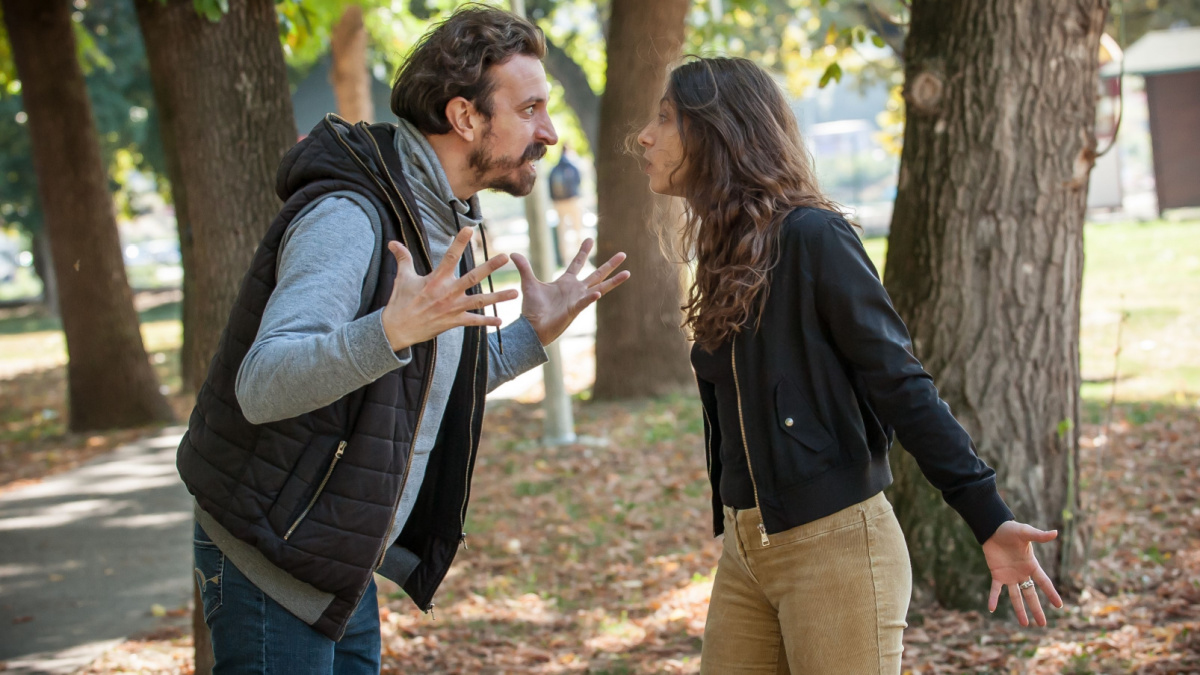Have you ever noticed those little things people do that just scream, “I’m not as confident as I seem”? Like always needing the last word or obsessing over what everyone else thinks?
Well, it turns out these behaviors are more than just annoying habits; they might be one of these 14 signs of insecurity.
1. Negative Assumptions

Judging someone negatively because they’re attractive often signals insecurity. It suggests a lack of self-confidence and an inclination to devalue others to feel better.
2. Immediate Defensiveness

Reacting defensively at the slightest provocation can indicate deep-seated insecurity. It shows a person’s constant need to protect their ego or image.
3. Obsessing Over Others’ Thoughts

Constantly worrying about what others might think reveals a strong insecurity. This often leads to overanalyzing social interactions and seeking approval.
4. Controlling Behavior

Insecurity can manifest as controlling tendencies, such as tracking someone’s movements or excessively monitoring their interactions. This behavior reflects a lack of trust and fear of loss.
5. Fishing for Compliments

Regularly seeking validation through compliments or praise can be a sign of insecurity. It shows a reliance on external approval to feel valued.
6. Bullying

Being rude or bullying others often masks personal insecurities. Bullies project their feelings of inadequacy onto others to distract from their own vulnerabilities.
7. Food Choice Criticism

Judging others’ eating habits and asserting moral superiority because of personal diet choices can signal insecurity. It’s a way to elevate oneself by putting others down.
8. Attention Seeking

An insatiable need for attention, whether positive or negative, can indicate insecurity. It shows a dependency on others for self-worth.
9. Overreliance on Validation

Needing constant validation from others to feel good about oneself is a classic sign of insecurity. It denotes a lack of self-esteem and confidence.
10. Envy and Resentment

Regularly speaking ill of others, driven by jealousy or envy, highlights insecurity. It’s an attempt to diminish others to artificially boost one’s ego.
11. Aggressiveness

Constantly feeling the need to challenge or fight others can be an expression of insecurity. It’s often an attempt to assert dominance and hide feelings of inadequacy.
12. Overexplaining

Frequent over-explanation or people-pleasing behavior is a sign of insecurity. It stems from a fear of disapproval or rejection.
13. Gossiping

Talking about others behind their backs, especially under the guise of reluctance, often reveals insecurity. It’s a way to focus negative attention on others instead of oneself.
14. Self-Centered Conversation

Dominating unrelated conversations with personal stories or issues is a classic sign of insecurity. It reflects a need to be the center of attention or to gain sympathy.
15 Conspiracy Theories That Turned Out To Be True

With the amount of information and misinformation available, the line between fact and fiction often blurs, giving rise to conspiracy theories. While many such theories are quickly debunked, a select few have, shockingly, proven to be true.
Here, we share 15 instances where once-dismissed conspiracies were validated, uncovering unsettling truths that challenge our perception of history, governance, and societal institutions.
15 Conspiracy Theories That Turned Out To Be True
15 Things That Have Been Normalized That Shouldn’t Be Normal

It’s pretty hard to define normal, but you know it when you see it. When something has been normalized, it isn’t shocking.
It’s something commonplace that we all get used to. However, maybe some of these things should never have become normal in the first place.
15 Things That Have Been Normalized That Shouldn’t Be Normal
The 5 Most Dangerous Cities in the U.S.

We all want to be safe, and living in a city that is high with crime is not usually what people look for when they look for a place to live. Tracking crime statistics and safety is a complicated measure, but the FBI does its best to track different crime rates in most cities and states in the U.S.
You may be surprised to learn which cities made the list of the most dangerous cities. We often associate crime with large cities, such as New York, Chicago, and L.A., but those cities did not make it to the top five.
The 5 Most Dangerous Cities in the U.S.
12 Things That Were Socially Acceptable 25 Years Ago, but Are Frowned Upon Today

Over the past 25 years, society has seen significant changes in what it considers acceptable behavior. What was once deemed perfectly fine in the past is now often met with disapproval. As cultural norms and values continue to evolve, it’s essential to reflect on these changes and how they shape our daily lives.
12 Things That Were Socially Acceptable 25 Years Ago, but Are Frowned Upon Today
15 Behaviors That Are a Dead Giveaways Someone Grew up Poor

Many people who grew up poor don’t exactly want to display this information for the world to see. However, it can come out in a wide range of behaviors that make it obvious that the person grew up lower class or in poverty.
Many people have habits that they picked up during those years that they haven’t let go of yet.

